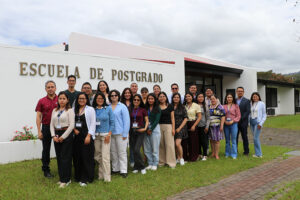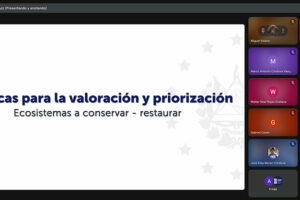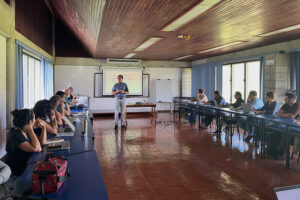CATIE opens its doors to showcase sustainable livestock practices at regional event
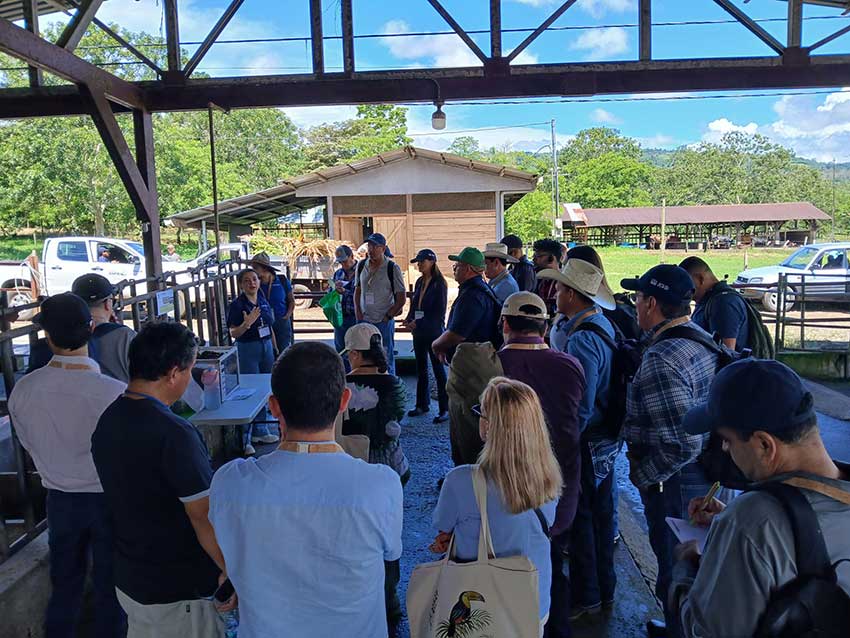
- Representatives from the public and private sectors of Latin America and the Caribbean visited CATIE’s campus in Turrialba, Costa Rica, to learn about experiences with silvopastoral systems
CATIE (Tropical Agricultural Research and Higher Education Center) had the honor of hosting the field day held within the framework of the Second Agri-food Dialogue between the European Union and Latin America and the Caribbean, organized by the European Union’s AL-INVEST Verde program, in collaboration with the Inter-American Institute for Cooperation on Agriculture (IICA).
The event was inaugurated by Dr. Fernando Schwanke, Director of Projects at the Inter-American Institute for Cooperation on Agriculture (IICA); Mr. Emilio Calvo, Director of the AL-INVEST Verde Program / Component 2; and Dr. Luis Pocasangre, Director General of CATIE.
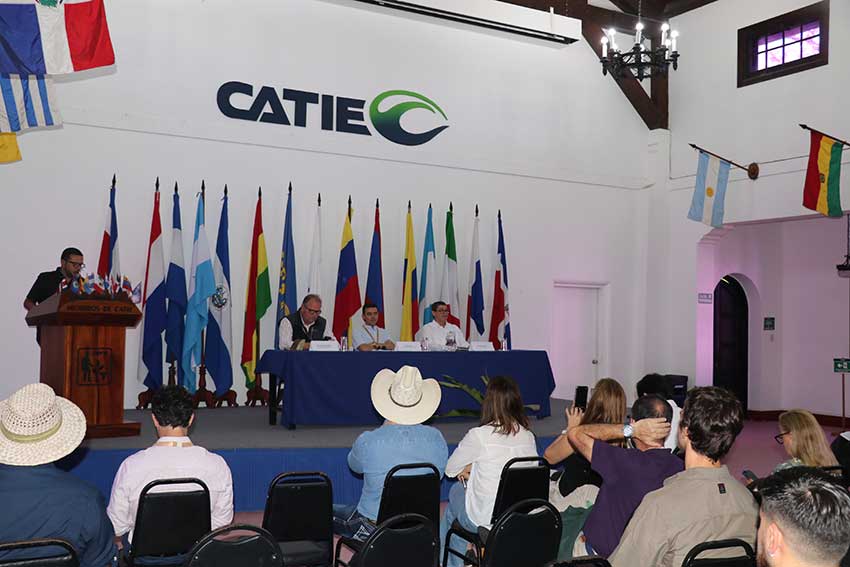
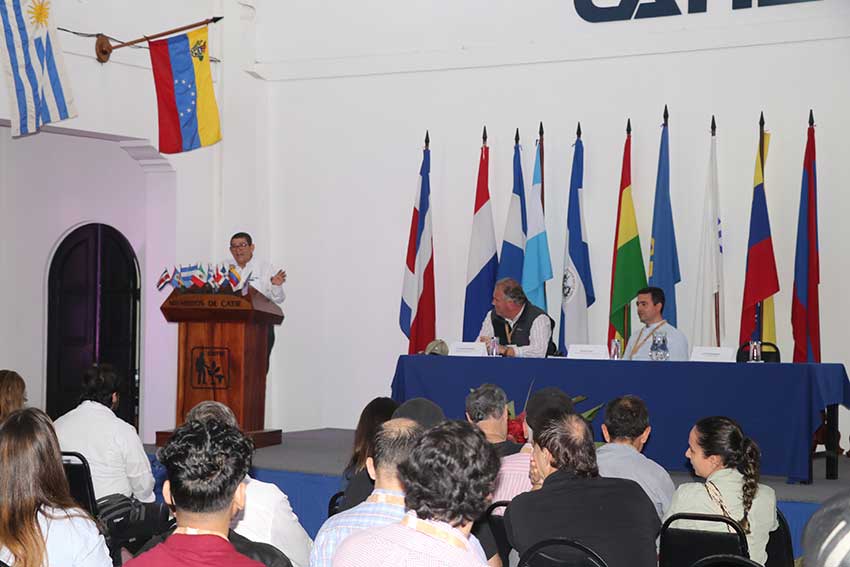
In his welcome message, Dr. Pocasangre highlighted the intercontinental significance of the meeting and recalled that CATIE has been a pioneer in designing policies and practices for sustainable livestock farming, including livestock NAMAs already adopted in several countries in the region. “CATIE has worked for decades on building sustainable livestock production models, and this campus reflects that effort. We are proud to share it with you,” he stated.
Dr. Schwanke, for his part, emphasized the importance of the research results developed by CATIE, not only in the field of sustainable livestock but also in various areas of sustainable production and the development of technologies for agricultural mitigation and adaptation to climate variability.
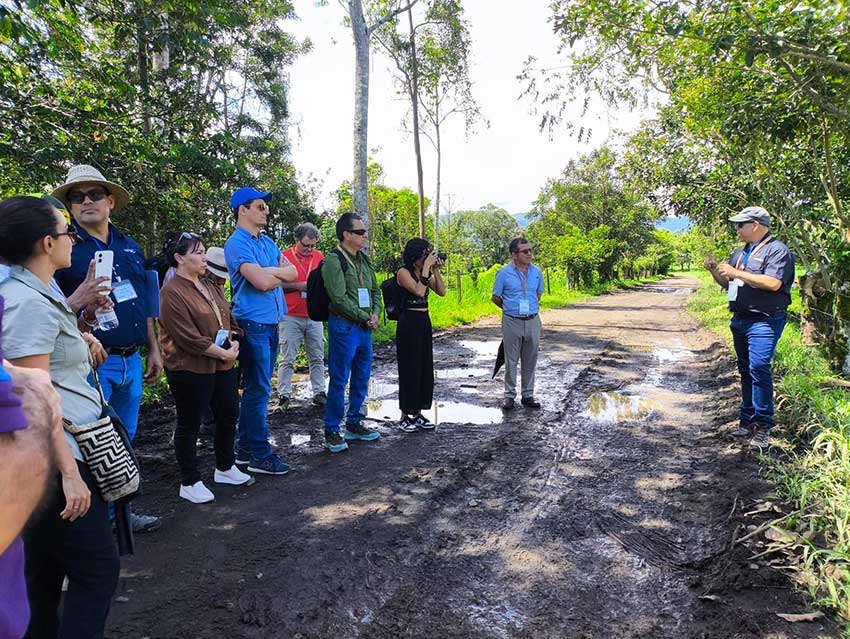
Likewise, Mr. Calvo noted that including a field visit in this type of meeting adds a unique added value to the experience. “These spaces allow for deeper connections and more tangible learning. It has been a successful and enriching event for all the countries involved,” he affirmed.
The event was attended by more than 80 representatives from ministries of agriculture and livestock from Latin America and the Caribbean, as well as delegates from the private sector and banking, who visited CATIE’s campus as part of this international initiative organized by the AL-INVEST Verde program and IICA, with the aim of promoting more sustainable practices in the livestock sector of the region.
During the day, Cristóbal Villanueva, sustainable livestock specialist from CATIE’s Livestock and Environmental Management Unit, presented the progress in the implementation of silvopastoral systems in Mesoamerica. He explained how these practices have helped improve the resilience of livestock landscapes, conserve biodiversity, and reduce emissions in the sector. “Payments for environmental services have been key to motivating producers to adopt these practices,” he emphasized.
Finally, Villanueva concluded, “Being able to show practices live and talk with producers and technicians in the field is an invaluable opportunity to learn, become inspired, and scale sustainable solutions across the region.”
The Second Agri-food Dialogue between the EU-LAC took place on June 25 in San José, Costa Rica. On the 26th, the visit to CATIE’s commercial farm in Turrialba took place, where concrete experiences in sustainable livestock production were presented. Participants were able to learn first-hand about silvopastoral systems, live fences, forage banks, and landscape management practices aimed at harmonizing productivity and environmental conservation.
With this participation, CATIE reaffirms its commitment to the sustainable transformation of the livestock sector in Latin America and the Caribbean, contributing applied science and integrated solutions to address today’s environmental and social challenges.
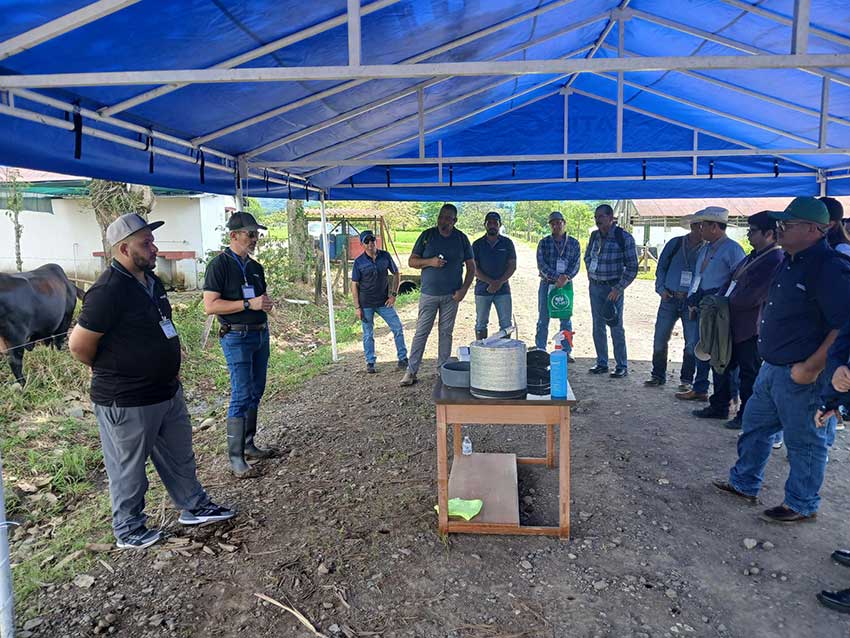
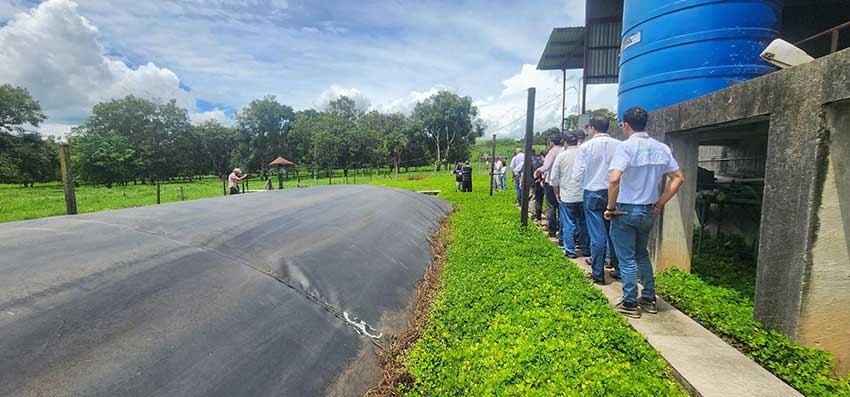
More information:
Cristóbal Villanueva
Sustainable Livestock Specialist
Livestock and Environment Management Unit (GAMMA)
CATIE
cvillanu@catie.ac.cr
Written by:
Karla Salazar Leiva
Communicator
Communications and Marketing Office
CATIE
karla.salazar@catie.ac.cr

